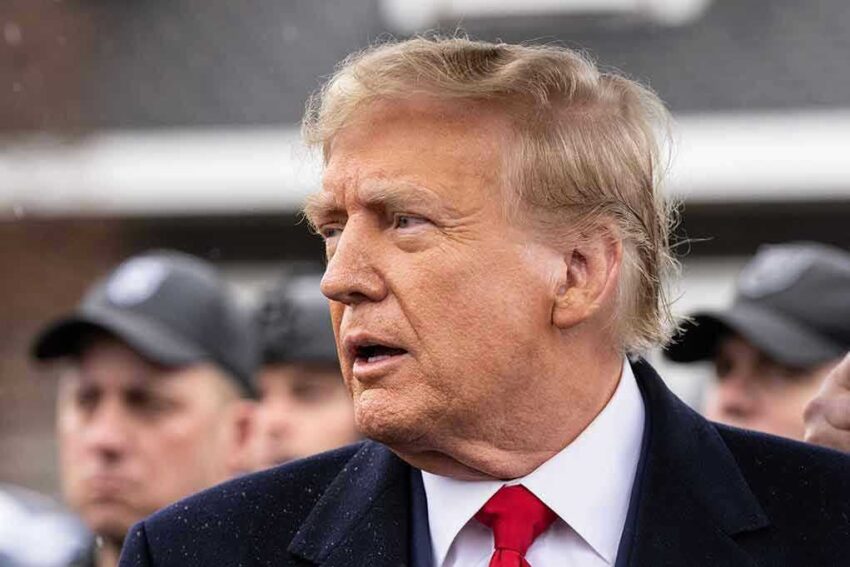President Trump’s ironclad pledge to send zero U.S. troops to Ukraine signals a decisive break from costly global entanglements, putting America’s interests and constitutional principles first while leaving European partners to shoulder their own security burdens.
Story Snapshot
- Trump assures no U.S. military deployment to Ukraine, emphasizing diplomacy over intervention
- European nations pressed to provide NATO-style security guarantees for Ukraine
- Direct talks between Putin and Zelenskyy prioritized before broader trilateral negotiations
- Experts warn of risks in ambiguous security promises and highlight past failures of similar assurances
Trump’s Pledge: No U.S. Troops, America First
On August 19, 2025, President Trump publicly declared that the United States will not deploy troops to defend Ukraine’s border, reaffirming this stance for the duration of his presidency—and beyond. This announcement, made during a Fox News interview, marks a clear pivot from previous administrations, focusing on diplomacy and national sovereignty rather than open-ended military commitments. Trump’s position resonates with Americans wary of endless foreign wars, runaway spending, and the erosion of U.S. constitutional priorities.
Trump’s approach places the responsibility for Ukraine’s defense squarely on European nations, urging them to provide robust, NATO-style security guarantees. By declining Ukraine’s NATO membership bid but supporting European-led security arrangements, Trump aims to resolve the conflict without further entangling American forces. This move draws a sharp line between the America First doctrine and the globalist policies that have previously stretched U.S. resources thin and risked deeper military entanglements abroad.
Diplomatic Push: Direct Talks, Not Military Escalation
Key to Trump’s strategy is a push for direct negotiations between Russian President Putin and Ukrainian President Zelenskyy, with the United States acting as a facilitator, not a combatant. Trump insists that ending the bloodshed and halting weekly casualties must be the top priority, advocating for a diplomatic solution before any trilateral or multilateral talks. Recent meetings at the White House and in Alaska underscore this renewed focus on peace through dialogue, not through force or American boots on the ground.
This diplomatic path carries significant implications for constitutional conservatives concerned with unchecked executive power and foreign entanglements. By avoiding unilateral military action and upholding congressional authority over declarations of war, Trump’s policy aligns closely with founding American principles and the longstanding tradition of non-interventionism—a stark contrast to previous administrations’ willingness to bypass Congress and embroil the United States in costly, protracted conflicts.
European Burden-Sharing and Security Guarantees
Trump’s demand for European nations to take the lead in guaranteeing Ukraine’s security presents both an opportunity and a challenge for America’s allies. European leaders are now under pressure to develop their own robust defense structures and provide credible security guarantees, akin to those of NATO but without direct U.S. military involvement. While some European governments appear willing to assume greater responsibility, experts warn that ambiguous or non-binding promises risk repeating the failures of past agreements like the Budapest Memorandum, which did little to deter Russian aggression or protect Ukrainian sovereignty.
The shift also relieves American taxpayers and military families from bearing the costs and risks of another foreign war—an outcome that aligns with conservative concerns over overspending, government overreach, and the loss of American lives in conflicts that do not serve vital national interests. However, the effectiveness of European-led security arrangements remains uncertain, especially as Russia maintains strong opposition to NATO expansion and any Western military presence near its borders.
Trump offers ‘assurance’ of no US troops in Ukraine, believes Putin-Zelenskyy meeting will happen https://t.co/gkHF1kfuwF #FoxNews
— MichaelRemains (@MichaelRemains) August 19, 2025
Some analysts caution that if European guarantees prove as unenforceable as previous accords, Ukraine could remain vulnerable to renewed aggression. Nonetheless, Trump’s stance is seen by many as a necessary correction to years of failed foreign policy, restoring constitutional checks and prioritizing American sovereignty over globalist entanglements. The coming months will test whether European nations can rise to the challenge—or whether the diplomatic gamble will leave Ukraine exposed and the region unstable.
Expert Analysis and Conservative Perspectives
Industry experts and respected analysts are divided on the long-term effectiveness of Trump’s strategy. Many praise the prioritization of diplomacy and burden-sharing, while others warn that ambiguous security arrangements may offer little real deterrence if not backed by credible force. Historical failures of previous assurances, such as the 1994 Budapest Memorandum, underscore the complexity of forging durable peace without direct U.S. involvement. For constitutional conservatives and those frustrated by years of military overreach, Trump’s approach represents a decisive realignment of U.S. foreign policy—one that upholds American values, restrains government power, and demands accountability from international partners.
Sources:
Trump offers ‘assurance’ of no US troops in Ukraine, believes Putin-Zelenskyy meeting will happen
Major Takeaways: Trump’s Meeting With Zelenskyy and European Leaders
Trump: No US Troops for Ukraine, Calls for Security Deal
Trump says US troops won’t be sent to Ukraine after meeting with Zelenskyy
Trump, Zelenskyy, World Leaders Meet at White House to Negotiate Peace Deal
Click this link for the original source of this article.
Author: Editor
This content is courtesy of, and owned and copyrighted by, https://www.rightwing.org and its author. This content is made available by use of the public RSS feed offered by the host site and is used for educational purposes only. If you are the author or represent the host site and would like this content removed now and in the future, please contact USSANews.com using the email address in the Contact page found in the website menu.





